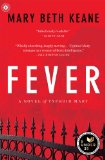Summary | Excerpt | Reading Guide | Reviews | Beyond the Book | Readalikes | Genres & Themes | Author Bio

Two weeks after the boy's death, after seeing to his little funeral suit, Mary packed her things and walked to the train station, leaving Mr. Kirkenbauer alone to decide what to do about all those dresses, that big, infected house, all those toy boats, the wooden horses, the collection of little shoes and caps. Maybe it was the timber, people said. Where had it been shipped from? Maybe it was the slope of the land and the way the water ran off down to the river. Maybe it was the pipe leading from the indoor privy. Maybe it was all the pickled herring and pigs' knuckles Mrs. Kirkenbauer asked her cook to buy in town. Maybe the mistress didn't know how to run a house, being the daughter of a Philadelphia grocer and the granddaughter of a cabbage-shaver. How lucky for her, the neighbors said, to have caught the eye of Alexander Kirkenbauer. How unlucky for him.
People said the old country was full of death, Mary's old country and everyone else's. The American papers would have a person believe Europe was one large sick ward, the people dying in ditches, blown over by every stiff wind. Alfred's Germany was like her Ireland, from the sound of it: people fighting every minute to stay on the side of the living, killing one another over a bowl of rabbit stew, and praying every day that the roofs of their shelters would stay where they were. When babies were born everyone willed them to live, but there was no surprise when they died, eventually, almost all of them, including the two Mary had cared for herself, bringing them eight, nine, ten times a day to the teat of a neighbor's goat so they could suckle what Mary's sister couldn't offer, having died bringing them to life, and what Mary couldn't offer, being only fourteen at the time, and having no babies of her own. The goat let them suck, but they died anyway, first the boy, and then the girl, and that's when Mary's nana told her it was time for her to leave Ireland, to leave while she was able. In America, Nana said, people didn't die so easily. It was the air, she supposed. The meat.
But people died in America, too, Mary learned quickly. It was just a sneakier death, a crueler death, in a way, because it always seemed to come by surprise. She didn't notice at first, but then she began to see it all around her. A meal pushed away for lack of appetite. A nap in the afternoon. A tired feeling that turned into a head cold, a rash into a ring of fire, a head cold into a fever that ravaged the person, left him beyond the reach of help. If they didn't die of illness, they died in fires, they were run over by streetcars, drowned in the river, suffocated after slipping into a coal hill and unable to scramble back to the surface. Neighbors, strangers on the street, peddlers at the market, children, priests, landlords, ladies. They all died, and every death was brutal. So what's a body to do? Mary thought as she stared out the train window at the Hudson and counted the minutes until she'd see Alfred again.
But that warm, clever little boy this time. The more she instructed herself to think about other things, the more she thought of him, like lifting a black tarp to glimpse something horrible below. Glimpses were all she could manage. His face. That peculiar, angled light in the Kirkenbauer kitchen. The dead weight of him.
Recently, when she and Alfred were talking about marriage and managing to not raise their voices, he'd asked whether she wanted a child. If she wanted to have a child, then that was different. Then they'd have to be married for the child's sake. "But I thought you didn't want that," Alfred pointed out, and she realized it was probably something she'd said. Not because she didn't think she'd love a child, or because she didn't think she'd be a good mother. She knew she'd love their child fiercely, entirely. She'd think about him or her every minute of her life, and that was the danger. They were so fragile, and it was so long until they grew strong. She thought of her sister's babies curled against each other in their cradle, and then the girl alone, how at only eight days old she seemed to be searching for her brother, her newborn fists closed so tight Mary believed for a day she might live. She thought of Mr. Kirkenbauer, the day he picked her up from the train, how he had no idea what was coming.
Excerpted from Fever by Mary Beth Keane. Copyright © 2013 by Mary Beth Keane. Excerpted by permission of Scribner. All rights reserved. No part of this excerpt may be reproduced or reprinted without permission in writing from the publisher.
Your guide toexceptional books
BookBrowse seeks out and recommends the best in contemporary fiction and nonfiction—books that not only engage and entertain but also deepen our understanding of ourselves and the world around us.